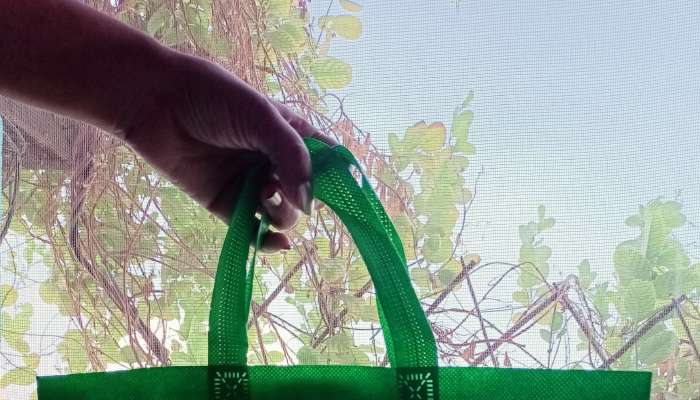
MUSCAT: Shoppers in Muscat were taken aback when they discovered on Wednesday that some supermarkets had stopped giving plastic bags with the items they had purchased.
“When I paid for the products, I had to purchase a green bag for 125 baisas at a supermarket in Ruwi as I was left with no other choice than to carry the products to my car without the bag,” said Sujata, an Indian expat living in Rex Road.
This comes after Oman rolled out the third phase of its plastic bag ban on Tuesday, July 1, in accordance with the approved timeline in Decision No. (8/2024). Officials said if the regulations are violated, they can be fined ranging from OMR50 to OMR1,000.
The Environment Authority (EA) said that the activities in this phase included sale of vegetables, fruits, grocery, foodstuffs, sweets, gifts and bakery stores.
Regarding the alternatives, the Environment Authority suggested use of fabric bags and paper bags.
The EA issued a statement, highlighting the long-term dangers of single-use plastic bags on marine life and the broader environment. “A single plastic bag may seem harmless, but it leaves a profound impact on marine life and our environment for decades! Your simple decision to use sustainable alternatives makes a big difference,” it stated.
The EA detailed the consequences of plastic pollution on ocean ecosystems. “Fish, turtles, and whales may mistake plastic bags for food and swallow them, leading to suffocation or blockages in their digestive systems, which can result in death. Then the marine creatures like turtles or birds may get entangled in plastic bags, causing them to suffocate or suffer serious injuries,” it said.
Sujit Kumar went to the supermarket to get essentials as he was expecting some guests at his home for lunch on Wednesday. “I went to the supermarket to buy some juices and food packets but the person at the billing counter reminded me of the plastic bags directive from July 1.”
Similarly, Sohail, a Pakistani expat, had been to a nearby supermarket in Qurum to shop for his daily essentials. Without knowledge of the ban, he purchased his monthly groceries, but he did not have any bags to carry the items. Therefore, he had to purchase a reusable bag.
“From now on, I will be keeping these bags in my car and whenever I go shopping, I will use them,” added Sohail.
Phase one of the plastic ban was implemented on July 1, 2024, targeting single-use plastic bags thinner than 50 micrometres.
The second phase began on January 1, 2025, and it included textile shops, tailoring shops, mobile shops, watch shops, retailers, etc. The third phase was introduced from July 1, 2025.